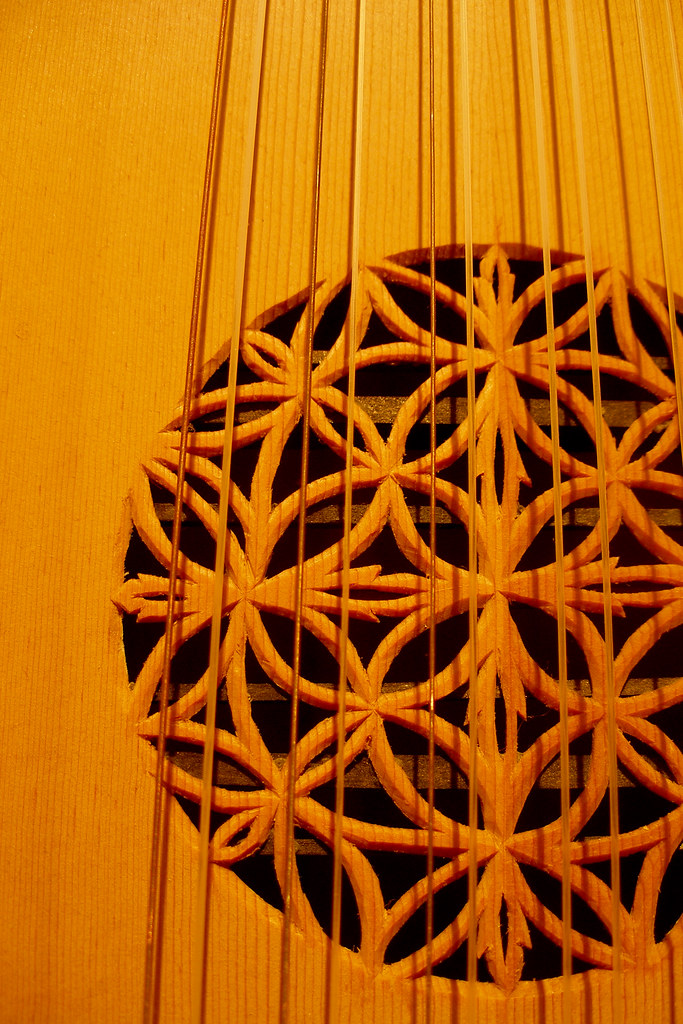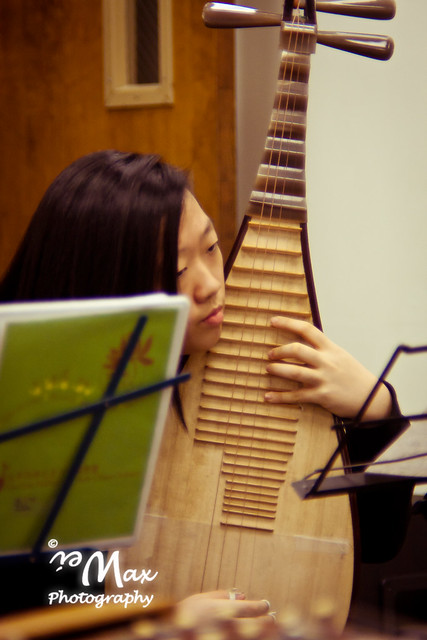 |
| Lute - Photo by quinet |
The strings are placed over a bridge which allows them to vibrate freely and the body of the lute is hollow in order to intensify the sound so that others can clearly hear the instrument. While the instrument is not overly popular today, it was incredibly popular during the baroque music period when people would play the instrument alone or as an accompaniment to other instruments.
When the lute was created is not clear. There is much speculation about how long it has been around. Some say that a variation of the lute may have existed during the time of the Ancient Egyptians, but others say it may not have existed until the 1500s. It is difficult to tell when exactly the lute was first created because there were so many instruments that existed throughout history that somewhat resemble the lute.
Though most may think that the lute is an instrument of the past, it is one that is still played today; however, the instrument is often custom made and is not one that is easily found in used music stores. As a result, this particular stringed instrument can be quite expensive to acquire. Finding someone who can teach one how to play the lute is not as difficult and the lessons may not be as expensive as they can be for other instruments.
In general, the lute is not the first instrument that people will choose to play, probably because it is not one that is seen as often as the guitar or the saxophone. The general population is influenced by the instruments they see most often, which will leave the lute out of the picture because it is not too common in much of today’s music.
This is not to say that the lute will never gain popularity again or that there is not really any place for it. People who play the lute find music to play, though it may not exactly be rock and roll.
Anyone looking for a unique instrument that is out of the norm might want to give the lute a try. It has its own unique sound that is not duplicated by other instruments and one that takes skill and practice to be able to play the instrument well. It can be a little challenging for some, while it can be easier for others at the same time. Some experience with playing the guitar might make learning how to play the lute easier, while someone with no experience is starting from scratch so they may have a more difficult time at first. Someone who really has an interest in learning to play the lute will probably have little difficulty regardless of whether they have previous experience with stringed instruments or not.
By Victor Epand
Victor Epand is an expert consultant for used CDs, autographed CDs, and used musical instruments.
Article Source: EzineArticles
|

